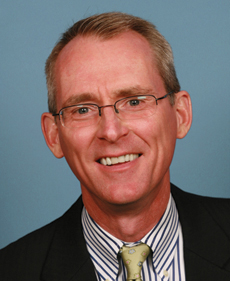Unlikely Advocates for Action on Global Warming
By Danielle Agugliaro
Mercedez Tilton has spent years studying environmental science. She has seen a changing climate’s effects firsthand in the lake near her Ithaca home, and she firmly believes in the evidence supporting climate change. At the same time, she doesn’t believe her conservative political values should be at odds with scientific fact.
Tilton, a student at the State University of New York’s College of Environmental Science and Forestry, is part of a group referred to as the “eco-right”— conservatives with a strong interest in working toward climate change solutions.

“I think that to ignore the facts in front of you just because of a political affiliation is foolish, so I try to remain objective on a lot of topics until I have solid evidence,” she said. “It’s hard to think differently when you are told conservatives are ‘supposed’ to act a certain way. But I choose to lean towards positive changes that will help our environment.”
The eco-right is made up of people who have a conservative political ideology and advocate for climate change, providing a potential source of Republican support for Democrats seeking to promote climate legislation. More and more data show that a majority of people in the United States believe in climate change, and increasingly, Republicans are becoming part of this group. The Yale Program on Climate Change Communication found that 50 percent of Republicans think global warming is happening, and 74 percent support funding research into renewable energy sources.
Even more promising for climate activists is a younger generation of Republicans who are more concerned with climate change and more involved in trying to do something about it than generations before them. At 32 percent of the U.S. population, millennials are likely to be a significant voting block in 2018 elections across the country, and could be a huge force for action on climate change legislation. Research suggests that increasingly, millennials are talking with their friends and family about climate change and voting based on a candidate’s stance on the issue, according to EcoAmerica, a nonprofit organization devoted to increasing support for climate solutions in the United States.
A 2016 survey of young conservatives found that a majority trusted Democrats more than Republicans to address climate change and support clean energy solutions, but as the eco-right grows in size, Republicans might play a bigger role in addressing climate change.
“It makes me angry that so many other Republicans don’t believe climate change is real, or that it’s ‘the other side’ creating an issue with no evidence,” said Annie O’ Sullivan, a student at Syracuse University. “The fact is that there is evidence that proves our environment is deteriorating and changing, and at some point, the effects will be deadly.” O’Sullivan said. She hopes that the eco-right catches on, so that there will be more candidates available, and consequently more people in power that can align with her views on climate change.

A central thought leader in the eco-right is Bob Inglis, the founder of RepulicEn.com, a website aimed at Republicans who believe in climate change and support legislative change for environmental concerns. Unlike many Democrats, who generally look to government regulation as a solution for environmental problems, RepublicEns wants free enterprise solutions and more of the burden placed on fossil fuel producers and other contributors to climate change, including consumers. In the 1990s, Inglis was a congressional representative for South Carolina’s 4th district, but he lost his bid for re-election in 2010 largely because of his belief in global warming. “The most enduring heresy that I committed was saying the climate change is real, and let’s do something about it,” Inglis told Frontline in 2012.

Inglis illustrates a central issue that faces the eco-right: a Republican that believes in climate change comes across as an oxymoron, and there’s a general assumption that rejecting climate change is part of a conservative ideology. With a president that has openly denied climate change and an Environmental Protection Agency administrator who keeps environmental concerns on the back burner, that message has only been affirmed in recent years.
Republicans that do believe in climate change face the task of trying to change the narrative. “I usually refrain from saying I am a registered Republican,” said O’ Sullivan. “People automatically think that I don’t care about issues like gay marriage, women’s reproductive rights, and of course the environment and climate change, but it’s not true. Those are all things I’m passionate and vocal about.” O’ Sullivan explained that even when she tries to tell people she supports issues like climate change, people shoot her down, saying that “supporting the Republican party is supporting climate change denial.”
Other conservatives like Tilton are frustrated with the administration’s apparent unwillingness to move forward.
“I think that we are in trouble,” Tilton said. “Previous years showed improvement across the country for the climate and we seem to be at a standstill.” Among other threats to the environment, Trump has reversed or attempted to roll back dozens of environmental regulations, promised coal workers that he will bring back jobs, and taken aim at the Clean Power Plan. With the Administration’s strong commitment to such a dirty industry like coal there’s not much improvement the eco-right can hope for.
O’Sullivan said she thinks Trump “knows that acknowledging big corporations’ contributions to pollution and greenhouse gases not only will hurt his own business dealings, but will hurt a lot of the people who voted for him.” Trump’s vow to bring back the coal industry struck most experts as an empty promise, but it hit home with voters in coal-producing regions who have increasingly seen mines close and their jobs disappear.
Most Republicans who make up the eco-right are also opposed to regulatory solutions to carbon reduction like the Clean Power plan, and favor free market approaches to climate change instead. As someone who agrees with less government regulation, O’ Sullivan finds herself leaning toward proposals like a carbon tax, an option endorsed by RepublicEn.
RepublicEn’s plan for addressing climate change would involve eliminating all subsidies for fuels and enacting a carbon tax, so that the price of fuel will reflect its negative effects of carbon dioxide on the atmosphere. High fuel prices will then force companies to pursue energy solutions based on renewable resources like wind and solar.
Tilton, however, thinks that a big change like that is unlikely. “The way to get a majority of the population to make changes to their lifestyle is to approach the problem slowly,” she said. “If we instill policies that only change a person’s lifestyle marginally, then a few months later, make another small change, the legislation would probably be accepted by more of the general population.”
Republicans are often seen as a roadblock to fighting climate change, but looking toward the future, at least some Republicans might instead become instigators of change. With a generation of millennials ready to vote based on their environmental concerns, Republican candidates might find it in their interest to shift their stance on global warming. And as the eco-right movement grows, the idea of climate-denying conservatives might gradually die out. “I think when we all acknowledge having a different view isn’t wrong, we can make more positive changes,” Tilton said. “Being conservative isn’t bad, and neither is being liberal! The climate change issue needs to be approached with a unified front, which doesn’t seem to be happening on either end.”
•••
